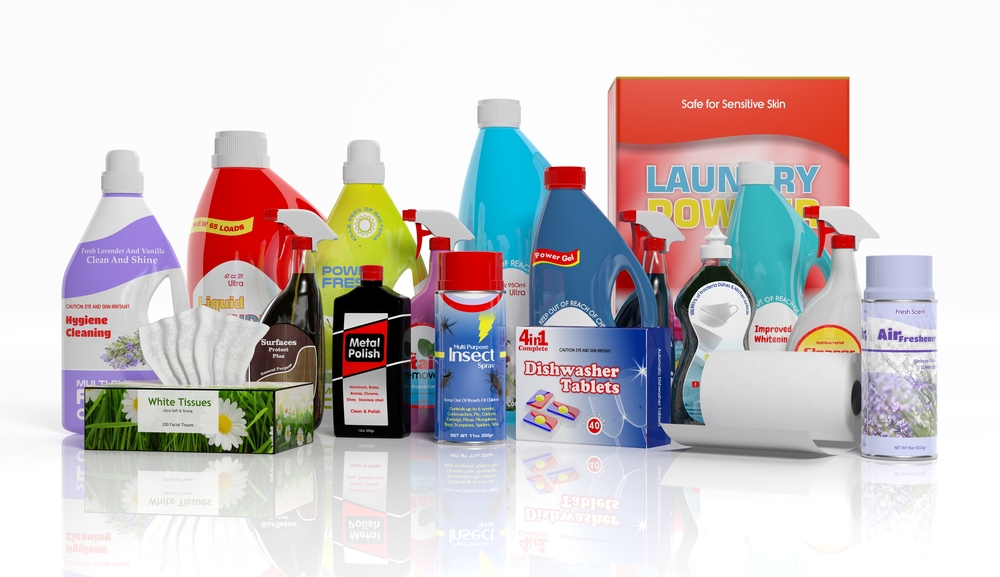EcoFriendly Alternatives to Commercial Cleaners and Other Household Products
Trying to rid yourself and your family is no easy task. Most everything around you has been synthesized, sprayed, enriched, hydrolyzed, flouridated… even going for a walk can prove to be toxic when you see those little tags at the corners of your neighbors’ lawns: “Stay off until…”
Good news is you can take charge in your own home and create a healthier, non-toxic environment there by making your own cleaning products.
Eco‐friendly alternatives to commercial cleaning products…
- are less toxic for you to use;
- are less polluting to manufacture;
- are less likely, in some cases, to cause injury if accidentally ingested;
- don’t cause indoor air pollution in your home;
- are generally less expensive than commercial products;
- can reduce waste from packaging;
- are simple and effective and have been used for generations;
- can help you save space in your cupboards and closets.
Make Your Own Shopping list:
- vinegar (white)
- baking soda
- corn starch
- salt
- borax
- lemon juice
- olive oil
- liquid soap (not detergent) – vegetable oil‐based (ask for it at health food store)
- reusable steel wool (not commercial cleaning pads that contain toxic cleaners)
- plastic spray bottle(s)
Commercial Products Available:
- Non‐chlorine (no sodium hypochlorite) scouring powder (e.g. Bon Ami)
- Citrus‐based cleaning concentrate (e.g. Citra‐Solv, Seventh Generation, etc.)
Natural Cleaning Recipes to Try
Surface cleaner
Find a combination that works for you, and always keep some ready in a spray bottle. You’ll find that weak acids like vinegar & lemon juice are good at cutting grease. Mix: 1 quart hot water, 1 tsp veg. oil‐based soap or veg. oil‐based detergent, 1 tsp borax, & 2 Tbsp vinegar. Note: Vinegar is used here as mild acid to cut grease; borax is used as a water softener, especially good in areas with hard water, to prevent soapy deposits. Or, mix 1/2‐cup vinegar in 1 quart of warm water. Or, dissolve baking soda in hot water for a general cleaner. (Source: EPA)
Non‐toxic toilet bowl cleaner
Pour in 1 cup borax, 1/2 cup white vinegar and leave overnight. Flush to wet the sides of the bowl. Sprinkle the borax around the toilet bowl, then drizzle with vinegar. Leave for several hours before scrubbing with a toilet brush. (Source: NaturalLand.com) For stains in toilet bowl, try a paste of lemon juice and borax. Let sit about 20 min. and scrub with bowl brush. Notes: Avoid solid toilet bowl deodorizers that contain paradichlorobenzene ‐‐ there is evidence that it causes cancer in laboratory animals. Some toilet bowl‐cleaning products contain acids (read labels). If acids are mixed with a cleaner containing chlorine, toxic chlorine gas is released. (Source: EPA)
Mineral deposits around faucets
Cover deposits with strips of paper towels, soaked in vinegar. Let set for 1 hour and clean.
Note: Hard water means the water has a high mineral content (e.g. calcium, magnesium, iron, etc.). This often results in whitish mineral deposits left on faucets, shower doors, drains, and windows. Vinegar, a weak acid, can dissolve many of these deposits. (Source: EPA)
Floor or furniture polish
Use one of the following methods: Use 1 part lemon to 2 parts olive oil; whisk until the mixture is emulsified (meaning the oil and juice no longer separate). Pour into a reusable oil spray bottle (available at gourmet food stores; it uses air to create a fine mist), spray the furniture surface and wipe clean with a soft cloth. Mix three parts olive oil and one part vinegar.
Moth balls
Use cedar chips instead (available at pet stores and tree nurseries).



